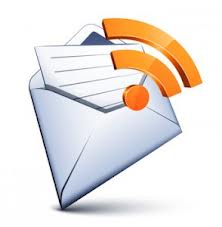Money has assumed many different forms throughout its history, affecting everyone from the strongest monarchs and the lowliest peasants, to you and me.
Money originated as barter in many different forms, from wampums in Native America to whale teeth in Fiji. Other barter items recorded were seashells, amber, ivory, decorative feathers, cattle, and a large number of stones including jade and quartz. Gold and silver were eventually established as money in most countries as most of the barter items listed were subject to decay, corrosion, and other forms of wear and tear. Over time and through competition with other forms of money, gold and silver emerged victorious. Gold and silver have properties that are unique and scarce enough to solve many of the issues that came with most barter items.
As medium of exchange, money should comply with the following five characteristics:
(1) It must be durable, which is why we cannot use cattle or corn;
(2) It must be divisible, which is why we cannot use a work of art;
(3) It must possess intrinsic value, which is why we should not use mere paper;
(4) It must be limited in the quantity that is available, which is why we do not use aluminum or iron;
(5) It should have a long history of acceptance in the free-markets.
Money, regardless of its form, is in reality an agreed value within the community.
We collectively give money its value. For much of recorded history, gold and silver not only complied with the points above, but it was also accepted as real money in the US until quite recently–1971. At that point forward the WORLD made an unparalleled decision to move currencies off the gold standard and onto an experimental global fiat standard (thanks to the Bretton Woods Conference).
All government-issued money today is fiat and voids all characteristics above save for the second point (divisibility) and, if you consider coins, the first point as well (durability). But who really uses coins all that much? Even though money today is just a piece of Monopoly paper with a number and two signatures on it, it still represents an agreed value for exchange. Even if money would turn into a digital entry on a computer, if people accept it, then it can be considered money.
What exactly does money represent?
In essence, money is more than a number printed on a note of currency; it is a unit of labour that traditionally represents work that was or will be carried out. In other words, money is stored human energy.When we go to work, we are exchanging our time and energy for money; the accumulation of money, therefore, means the possibility of acquiring this “human energy.” If instead of a service your purchase an item, it is still the purchase of someone’s labour, as the manufacturing of that item required someone’s time and energy. The more money a person has, the more access one has to this ‘stored energy’ (in the form of labour) and resources at a future date. Therefore, if you control money, you control humans and their time and energy. (This is, in fact, what I consider to be one of the hidden messages in the movie The Matrix.)
The more restrictions there are to money creation, the harder it is to control. Commodities like gold and silver require extraction from the ground, which entails elaborate machinery, capital, labour, safety considerations, and a long and arduous process before the product even reaches the market. The implications of extracting gold are great, much more so than printing paper money or merely creating money digitally. This makes gold less manipulative as a form of money. While the gold standard is not the best system out there, it is nevertheless a better system than that of a fiat currency. Competing currencies (self-issued currencies) that create competition, much like business competition, is in my opinion the best option.
Whoever controls the volume of money in any country is absolute master of all industry and commerce.
-James A. Garfield, 20th President of the Unites States
Although money represents “stored human energy,” to a certain degree, its ultimate perception will vary among different people.
What do you view money to be?
How money is perceived differs from person to person. The list below includes but a few examples of common thoughts regarding the nature of money. With what do you associate money? There are no right answers. Post your comments below.
- Money = Freedom
- Money = Time
- Money = Evil
- Money = A tool
- Money = Survival


